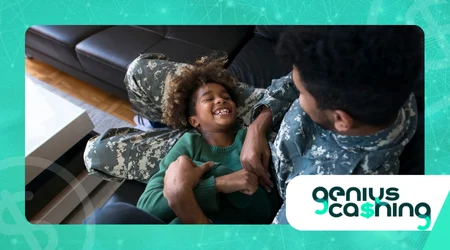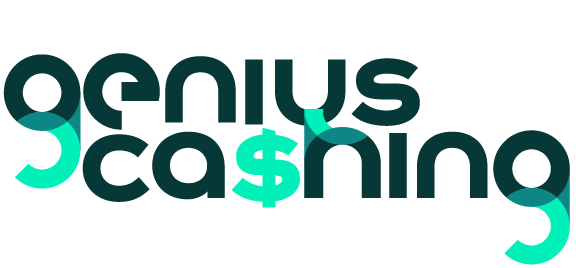Government Benefits for Veterans: What You Need to Know

Veterans have made significant sacrifices to serve their country, and in return, the government provides a range of financial, healthcare, and educational benefits to support them after their service.
Anúncios
However, navigating the complex system of government benefits for veterans can be overwhelming, with multiple programs, eligibility requirements, and application processes.
Understanding what benefits are available and how to access them can make a significant difference in financial stability, healthcare coverage, and career opportunities for veterans and their families.
In this comprehensive guide, we will break down the key government benefits for veterans, explaining their purpose, eligibility criteria, and how to apply.
1. Healthcare Benefits for Veterans
One of the most important government benefits for veterans is access to quality healthcare through the Department of Veterans Affairs (VA). The VA provides a comprehensive healthcare system designed to serve veterans with a range of medical needs.
Anúncios
Veterans Health Administration (VHA)
The VHA is the largest integrated healthcare system in the U.S., offering services such as:
- Primary care and specialty treatments
- Mental health services
- Preventive care and screenings
- Prescription medications
- Emergency care and urgent care clinics
Eligibility and Enrollment
To qualify for VA healthcare benefits, veterans must meet service requirements, such as:
- Having served in active duty, reserve, or National Guard
- Receiving an honorable or general discharge
- Meeting specific income requirements (for some benefits)
Veterans can apply online through the VA website, in person at a VA medical facility, or by mailing an application form.
Also read our article about: The Psychology of Money: How Behavioral Finance Impacts Your Investment Decisions
2. Disability Compensation
Veterans who have suffered injuries, illnesses, or disabilities related to their military service may be eligible for monthly disability compensation from the VA.
How Disability Compensation Works
- The VA assigns a disability rating (0% to 100%), which determines monthly payment amounts.
- Compensation is tax-free and may also provide additional allowances for dependents.
- Veterans with severe disabilities may qualify for Special Monthly Compensation (SMC), which provides additional financial support.
How to Apply
- Submit an application through VA.gov or visit a local VA office.
- Provide medical records and service-related documentation proving the disability.
- Undergo a Compensation & Pension (C&P) exam to assess the severity of the condition.
3. VA Pension Benefits
Veterans with low income and limited assets may qualify for a VA pension, which provides financial assistance for basic living expenses.
Eligibility Requirements
- Must have served at least 90 days of active duty, with at least one day during wartime.
- Must be 65 or older or have a permanent disability.
- Must meet income and asset limitations.
Special VA Pension Programs
- Aid & Attendance (A&A) Pension: Provides extra payments for veterans who need assistance with daily activities.
- Housebound Benefits: Offers additional financial aid for veterans confined to their home due to disability.
Veterans can apply for a VA pension through the VA’s online portal, by mail, or at a regional VA office.
4. Education and Training Benefits
Many veterans seek new career opportunities after military service, and the government offers multiple education programs to help them succeed.
GI Bill Benefits
The Post-9/11 GI Bill and Montgomery GI Bill (MGIB) provide tuition assistance, housing allowances, and other educational benefits. These programs help veterans pay for:
- College or university degrees
- Vocational and technical training
- On-the-job training and apprenticeships
- Certification and licensing programs
Yellow Ribbon Program
For veterans attending private universities or out-of-state schools, the Yellow Ribbon Program helps cover tuition costs not fully covered by the GI Bill.
How to Use GI Bill Benefits
- Apply through the VA website to receive a Certificate of Eligibility (COE).
- Choose an approved educational institution that accepts VA benefits.
- Submit the COE to the school’s veteran affairs office for tuition processing.
5. Home Loans and Housing Assistance
The VA offers affordable home loan options to help veterans and their families achieve homeownership.
VA Home Loans
VA-backed home loans offer:
- No down payment required
- Lower interest rates compared to conventional loans
- No private mortgage insurance (PMI)
- Flexible credit requirements
Eligibility for VA Home Loans
To qualify, veterans must:
- Have served at least 90 consecutive days during wartime or 181 days during peacetime
- Have an honorable discharge
- Obtain a Certificate of Eligibility (COE) from the VA
Veterans can apply for a VA loan through participating lenders, including banks and mortgage companies.
Housing Grants for Disabled Veterans
Veterans with service-connected disabilities may qualify for Specially Adapted Housing (SAH) grants to modify their homes for better accessibility.
6. Employment and Career Support
Transitioning from military to civilian life can be challenging, but government programs help veterans build successful careers.
Veteran Readiness and Employment (VR&E) Program
Previously known as Vocational Rehabilitation and Employment, this program provides:
- Job training and career counseling
- Resume and interview preparation
- Assistance with finding employment
Hiring Preferences for Veterans
Many government agencies and private companies offer hiring preferences for veterans, providing:
- Priority consideration for federal jobs
- Tax incentives for companies hiring veterans
Veterans can use platforms like USAJobs.gov and VA employment services to find job opportunities.
Frequently Asked Questions (FAQ)
1. How do I find out which benefits I qualify for?
You can check your eligibility for government benefits for veterans on VA.gov or visit a local VA benefits office for assistance.
2. Can veterans receive both disability compensation and a VA pension?
No, veterans typically cannot receive both. However, the VA will determine which benefit provides the highest financial support.
3. How long does it take to process a VA disability claim?
Processing times vary, but most claims take between 3 to 6 months. Appeals can take longer if additional documentation is required.
4. Do VA home loans require good credit?
VA loans have more flexible credit requirements than conventional loans, making them accessible to a wider range of veterans.
5. Can dependents and spouses receive VA benefits?
Yes, spouses and dependents may qualify for education assistance, healthcare, and survivor benefits under specific VA programs.
Conclusion
Veterans have access to a wide range of government benefits, from healthcare and disability compensation to education, housing, and employment support. However, many veterans are unaware of the full extent of these programs or how to apply.
By understanding the eligibility criteria, application processes, and available resources, veterans can maximize their benefits and improve their quality of life. Whether seeking financial assistance, career training, or homeownership support, these programs exist to help veterans transition successfully into civilian life.
For more information, visit VA.gov or contact a local veteran service officer to explore the government benefits for veterans that best suit your needs.
